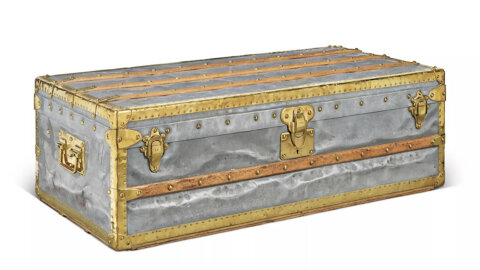In 1977 two Canadian actors, Robert Gravel and Yvon Leduc, created a new form of entertainment: Improvisational Theatre. They gave life to the utopia of a completely improvised performance. In a short amount of time it became the most represented show in the entire world.
In 1989, Francesco Burroni, the current artistic director of the Match d’Improvvisazione Teatrale organization (Improv Match) introduced it in Italy and soon began to spread to many cities: the Italian National Network of Improv Match plans common training opportunities, periodic internships, in-depth stages, fusion between improvisational theatre and musical and artistic improvisation in general.
Following, the Improv Theatre actors of Rome (Alessio De Carli, Andrea Proietti, Barbara Villa and Simona Pettinari) talk about their work for FIRST Arte:
How often do you hold the Jam a ’Mange’ Improv Theatre event at the Cantiere Theatre?
Andrea Proietti: “We’ll present the Jam a’Mange’ event only at the Cantiere Theatre for this season, but let’s say that we would like to propose it again in other places, it is a show that allows an easy setup because there’s practically nothing on stage, only the actors. And yes, it will be repeated at the Cantiere Theatre on November 22 and then also on December 6, Improv acting combined with storytelling, we will experiment a new conceptual fusion.
Then there will take place the Improv Matches that have a grander structure and will be hold on January 10, January 24, February 7, February 28, at the San Giustino Theatre: everything is structured like a sports match because improvisational theatre originated from ice hockey in French Quebec.
There is the referee, there are fouls, there are scores, but it is indeed a real theatrical show, there are two teams of actors who face each other on stage for the pleasure of the audience.”
What are you currently busy at?
Barbara Villa: “At the moment we are organizing the Jam a’Mange’ and then we will hold the Improv Match, in reality there are many improvisational theater formats, such as the long-forms, stories made up of suggestions given by the audience that must intertwine and find a common purpose, so it’s a slightly different dynamic.
If we had a script and knew what to do from the start it would just not be as fun for us to do it, it would lose its spontaneity.
We are also busy with the courses of our Improvisional Theatre school, there is a first-year course for all novices and then an advanced one: advanced courses are held every Wednesday and first-year courses instead every Thursday in Via di Monti di Pietralata street 16 from 8:30 p.m. to 10:30 p.m., we also have thematic workshops that are specific to the themes of theatrical improvisation, open to all, even to those who are not part of our school. “
Why do you do Improv Theatre, what do you want to communicate to the audience?
Alessio De Carli: “Everyone has a different answer, to me there is the pleasure of discovering what you want to show on stage the moment you think about it, it may seem a convoluted concept but the surprise and the amazement that you feel about what you can think or say, while you’re improvising on stage is a feeling that becomes almost addictive for anyone who experiences it. To the audience we offer carefree fun that still has the foundations of theatre, we try to make a comedy that is not trivial but as deep as possible. Without false modesty and without being too presumptuous I would call it intelligent comedy.”
Simona Pettinari: “It is a show which is extremely stimulating, it is a branch of theater so there is also that aspect of communication, expression, fun. At the level of imagination we are absolutely free, although there is a research behind, what we bring to the stage is theater even if improvised and we say it has the beauty of spontaneity and very direct contact with the audience. We need to know how to improvise having classical theater bases which help us to project emotions and stories to the public, like the musician who has to know how to play an instrument to join in a Jam Session.”
Barbara Villa: “Improvisation cannot be improvised, this is fundamental to state. If we allow ourselves to quote Shakespeare it is because we have all studied his work, it is easy to think that if it is improvised everyone can do it, but we also mention nineteenth-century Russian writers, and you must have read their works otherwise it won’t be enough just to mimic Russian, that is no theatrical improvisation. The audience realizes if there is or there is not a knowledge base to support your actions, it is not so stupid.
Normal theater lets you focus more on a single character, Improvisational Theater instead allows you to put together in the same evening everything you’ve studied in your career, it is possible to change characters even every 5 minutes so it’s very different from playing your character an hour and a half, here everything changes every 10 minutes. The beauty lies in the fact that you can rediscover yourself and reinvent yourself each time in a different way.”
Andrea Proietti: “Clearly we improvise with a large base of study and commitment to back us up but basically everyone can improvise if they really believe in what they are doing, and the beauty is being able to be so many different characters or whatever you want all within an hour. Just believe it and the magic of the theater will turn into reality.”
Written and Translated by Gerardo Iannacci
All pictures present in this article were taken by Gerardo Iannacci, all rights reserved





